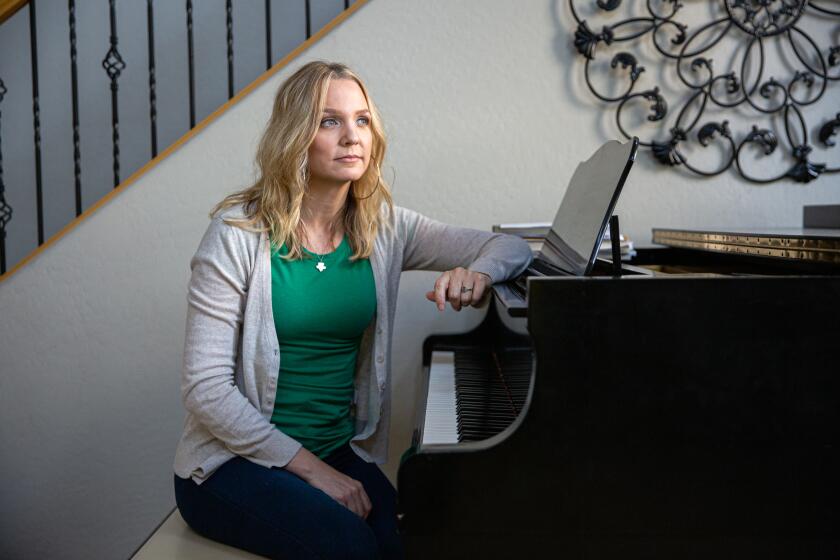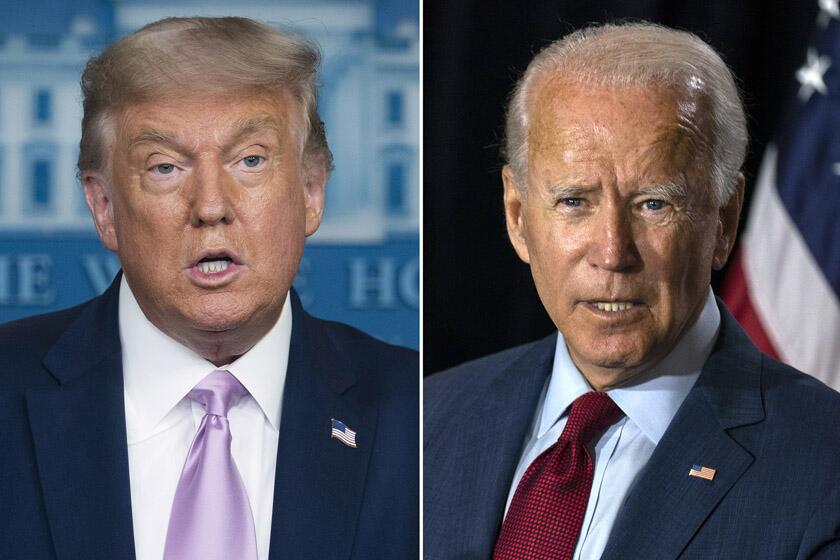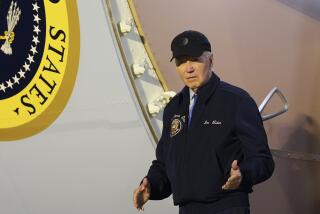‘I really don’t think he has done a great job’: COVID-19 puts Florida at risk for Trump
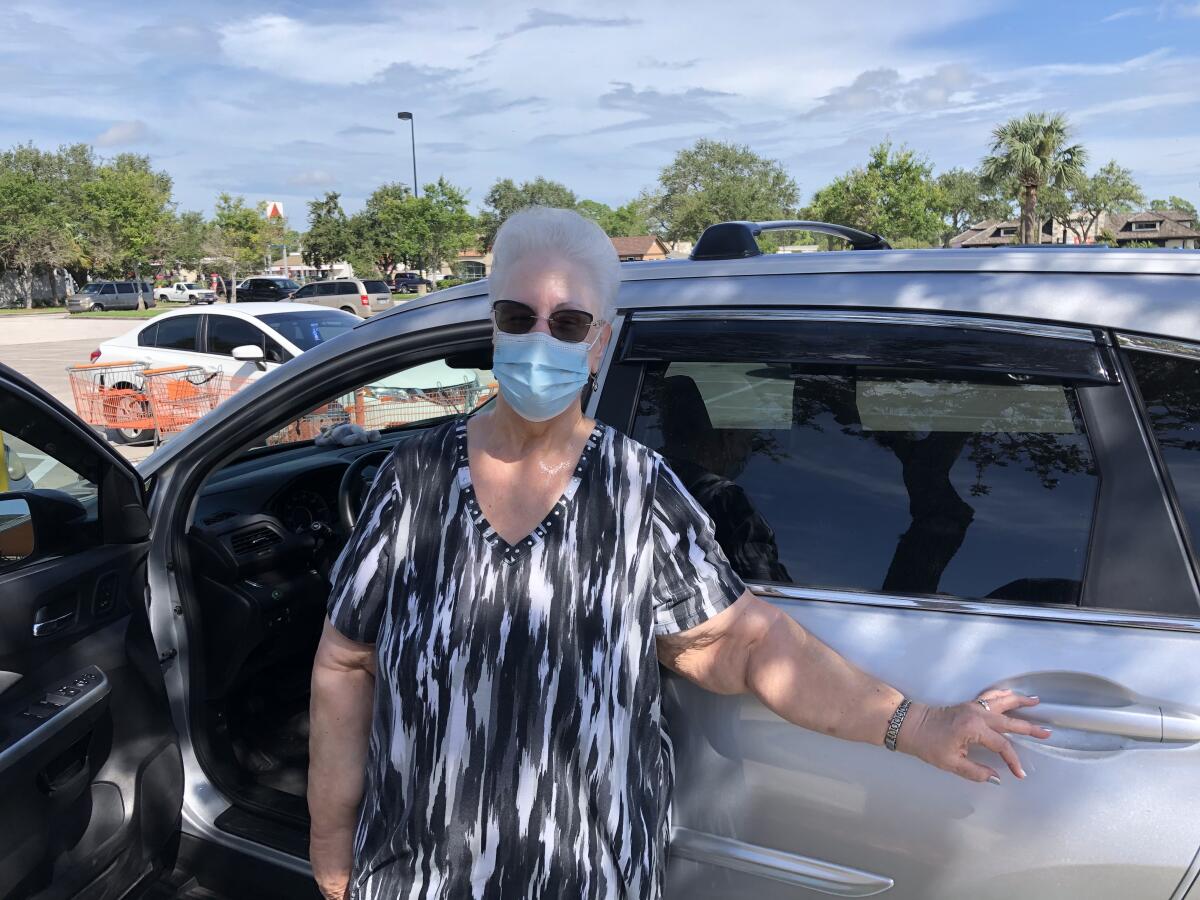
PINELLAS PARK, Fla. — Priscilla Skalka figured Donald Trump’s experience as a businessman would serve him well as president, so the Florida retiree voted for him.
Four years later, she’s convinced he lacks what it takes to run the country.
For the record:
3:25 p.m. Sept. 26, 2020This article incorrectly states that Hurricane Maria was two years ago. It was three years ago, in 2017.
The pandemic has upended Skalka’s life, first with depression as it kept family away, then with a terrifying case of COVID-19 that put her in intensive care at a St. Petersburg hospital. She believes Trump failed to take the threat seriously early on.
“I really don’t think he has done a great job,” said the 79-year-old independent voter, who was wearing a surgical mask as she leaned on her cane in the sweltering heat outside a home improvement store.
Skalka’s souring on Trump illustrates how his failure to contain the coronavirus, which has killed over 200,000 Americans, has undercut his standing among older white voters, imperiling the Republican’s prospects for reelection. Skalka is weighing whether Democrat Joe Biden might make a better president.
Florida is a must-win state for Trump. Without its 29 electoral votes, he will likely have no path to victory in the Nov. 3 election, now less than six weeks away. Polls give Biden a slight edge in Florida, where Trump defeated Hillary Clinton by just 1% in 2016.
Republicans’ even narrower wins in Florida’s 2018 races for governor and the U.S. Senate strengthened the state’s renown for extremely tight elections — like the one that made George W. Bush president after a ballot recount debacle in 2000 left him 537 votes ahead of Al Gore out of 6 million cast.
The battle to replace Supreme Court Justice Ruth Bader Ginsburg, who died last Friday, could heighten what was already set to be record voter turnout in Florida.
Trump’s popularity in the state dropped in June as COVID-19 deaths surged after Gov. Ron DeSantis — a fellow Republican following the president’s lead — defied public health experts and rushed to lift stay-at-home orders. More recent polling shows a rebound for Trump.
“I think the politics of the pandemic really hurt Trump in Florida over the summer,” said Republican strategist Alex Conant, a former advisor to Sen. Marco Rubio (R-Fla.). “Florida is a very senior-heavy state, and seniors were more concerned, understandably, than other voters about the pandemic.”
The virus has killed nearly 13,800 people in Florida, 739 of them here in Pinellas County on the Gulf Coast near Tampa.
“It’s really kind of a serious issue for a lot of people,” said Thomas Eldon, a Democratic pollster in Florida. “They just want to live.”
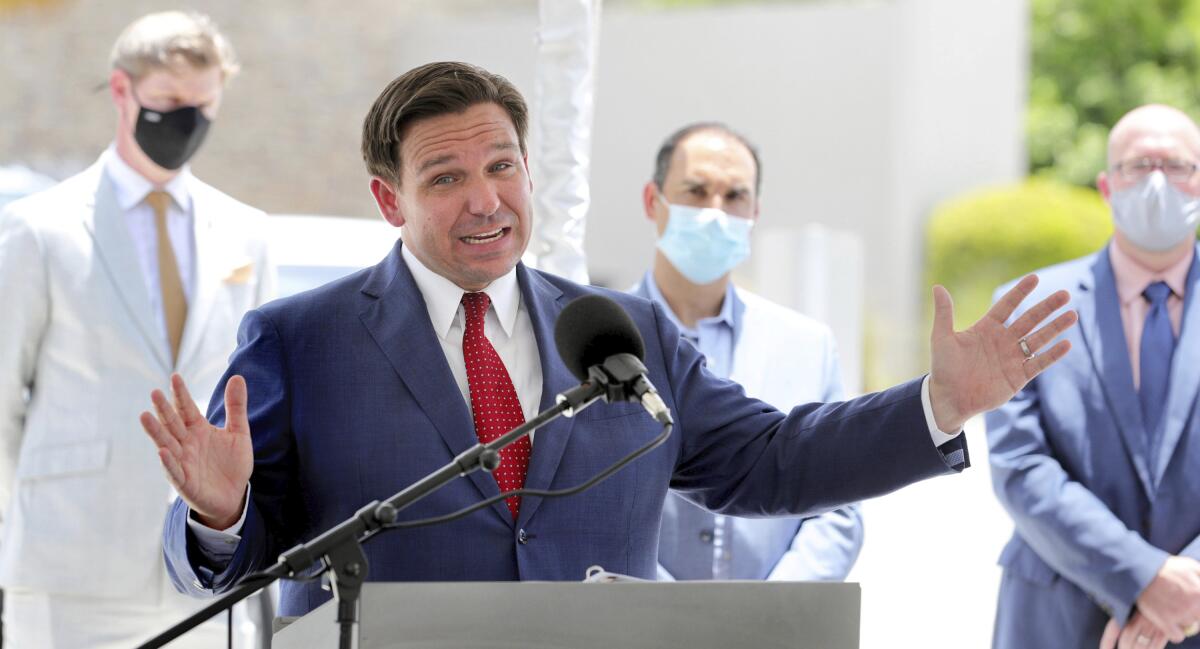
During the six days Skalka spent fighting for her life at Northside Hospital in late June, no visitors were allowed at her bedside. Her husband, Arnold, tested positive but never got sick.
Skalka, a retired administrative assistant to an insurance agent, hasn’t hugged her grandchildren since February. Apart from a Mother’s Day greeting — “we couldn’t touch” — on her front porch here in an “over 55” complex, she hasn’t seen them.
“I’m still recuperating,” she said. “We’re here, almost in October, and I’m still not myself. It’s very scary.”
Pinellas County, which includes St. Petersburg and its suburbs, tends to side with the winner in presidential races, including Trump and his predecessor, Barack Obama.
A predominantly white county with an abundance of retirees from the Midwest, it is split almost evenly among Democrats, Republicans and independents. Like suburban areas nationwide, it has tilted toward Democrats during Trump’s presidency.
The defection of women voters has already cost the GOP control of the House and in 2020 is putting states like Arizona in play.
Statewide, both Trump and Biden are trying to maximize turnout of staunch partisans. For Trump, that means mobilizing white rural and blue-collar voters, especially men, many of them in northern counties culturally akin to the Deep South.
Trump is also counting on strong support from Cubans, Venezuelans, Nicaraguans and Colombians who like his bashing of socialism. Barbara Lagoa, a Cuban American federal appellate judge from Florida, is among the women he is considering to replace Ginsburg.
Trump’s opposition to abortion rights and inflammatory rhetoric on gun rights and illegal immigration resonate with many evangelical Christians and other social conservatives around the state.
Joseph Wieder, a retired construction worker and Marine veteran who lives on Social Security here in Pinellas Park, said Trump did “all that a man could possibly do to look out for the American people” when the pandemic hit. The screensaver on his mobile phone is a picture of Jesus enveloping Trump in his robe.
“We ought to make him king,” said Wieder, a Republican wearing a “Make America great again” cap on a visit to Sam’s Club. He warned of violence if Biden wins.
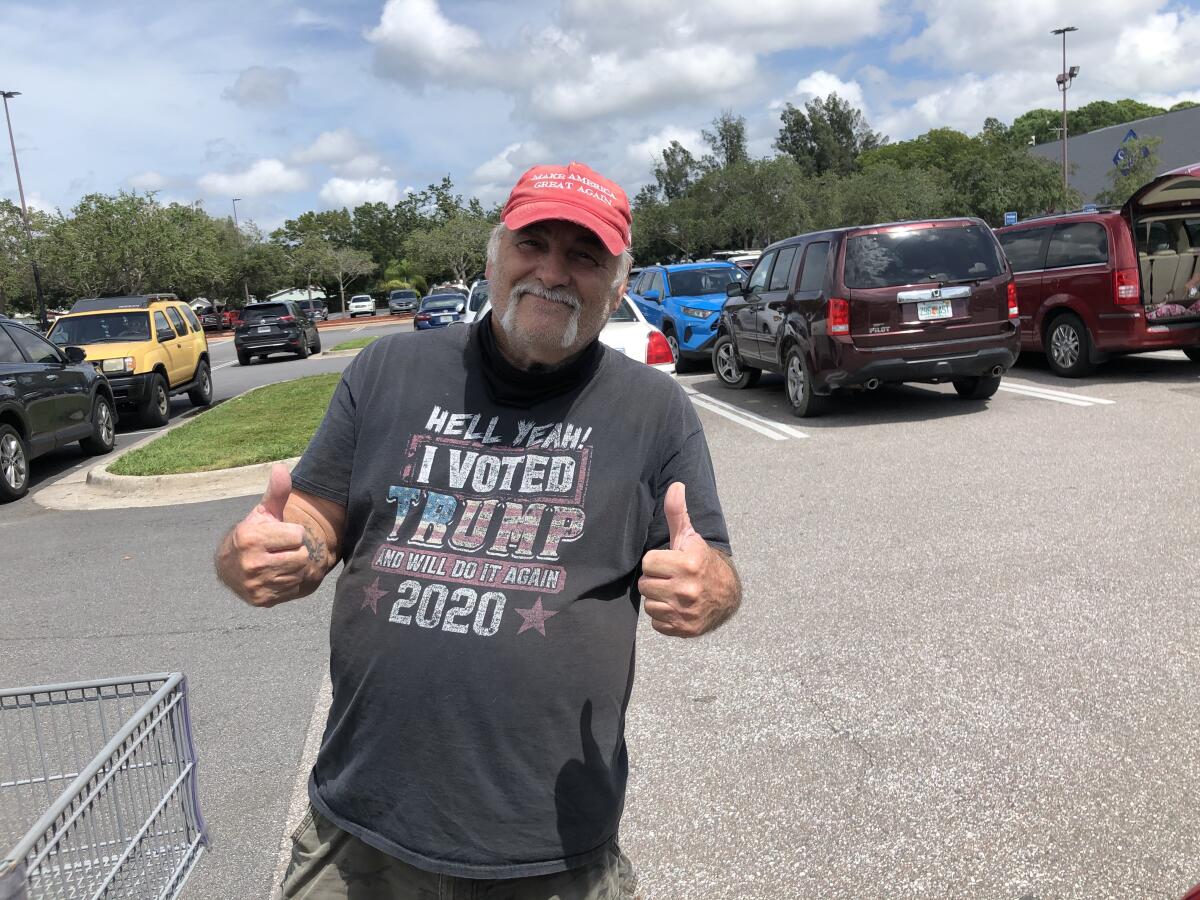
“If the Democrats end up stealing this election, and that’s what it would be, through their diabolical ways, there will be war,” Wieder said.
Ed Henderson, 62, a conservative independent voter from Georgia, moved last year to Clearwater, Fla., where he works at a deli counter. Relaxing with a bottle of Coors at a marina dock, he said it was disappointing that the pandemic halted Sunday services at the Baptist church where he’d been making friends, but he did not fault Trump.
“He’s not a friggin’ doctor; he’s a businessman,” he said.
Henderson, who abhors abortion, is glad Trump has a chance to name a third Supreme Court justice. “It’s even more critical, in my point of view, that Trump wins,” he said.
Biden, for his part, is banking on intense anti-Trump passion in Democrats’ urban and suburban strongholds — Miami-Dade, Broward and Palm Beach counties and Tampa, Orlando and Tallahassee.
“I would have a root canal, poke my eyes out and set my hair on fire before I’d vote for him,” said retiree Melody Urso, 69, a Democrat walking her Yorkie, Rosie, in Dunedin, a beach town north of St. Petersburg.
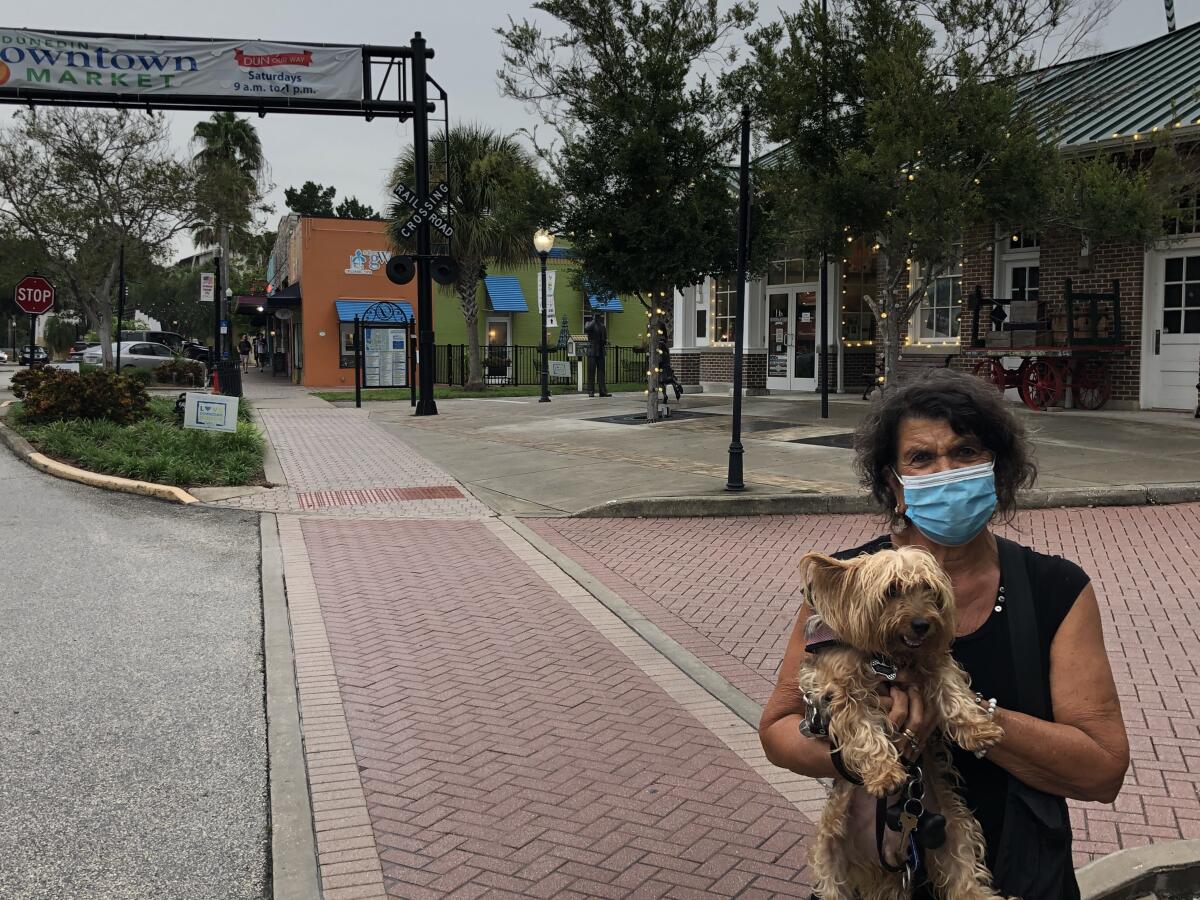
Another top target for the former vice president is Florida’s growing population of Puerto Ricans, many of them upset by Trump’s hostile and racially charged response after Hurricane Maria hit two years ago. Last week, Trump announced the release of $13 billion in federal aid to the U.S. territory for disaster recovery.
Polls showing Trump performing relatively well among Florida’s diverse patchwork of Latinos have unnerved some Democrats. Biden, who has limited travel out of concern over the virus, campaigned outside Orlando last week with Puerto Rican pop star Ricky Martin.
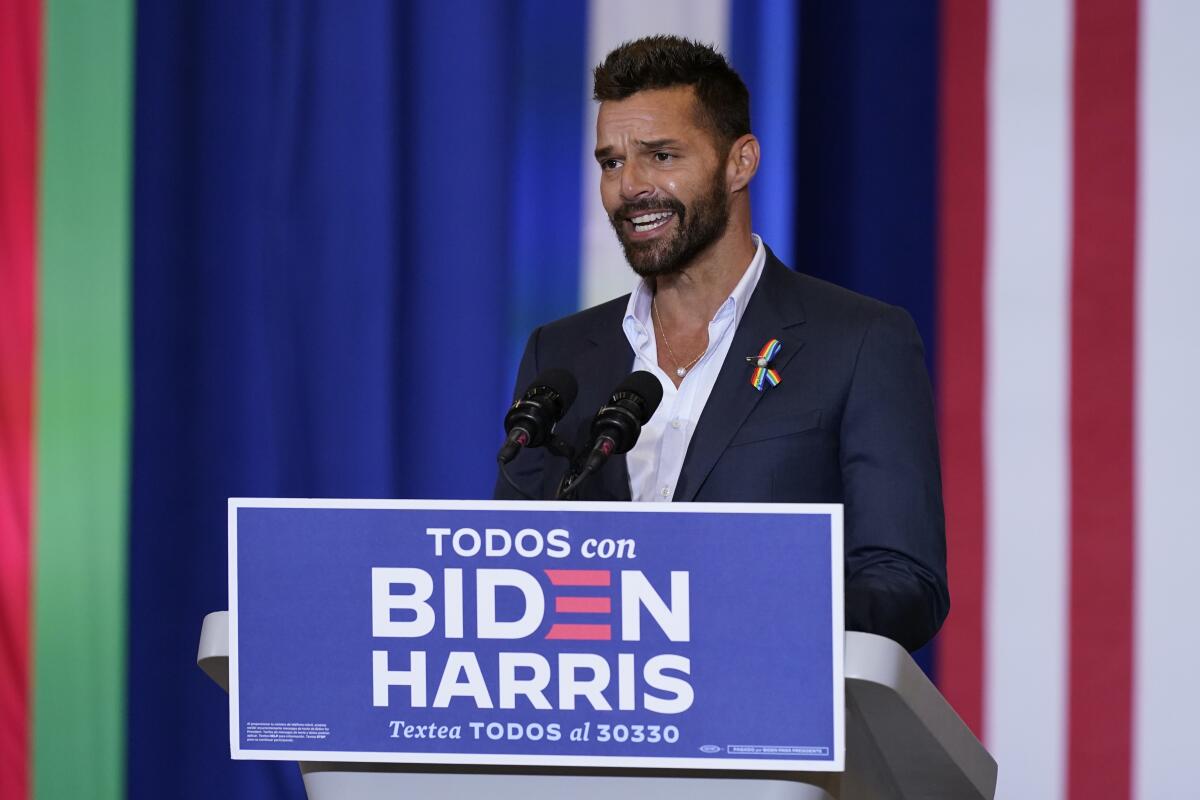
The essence of Trump’s challenge in Florida was captured by an NBC News-Marist poll of likely voters early this month. It found Biden winning support from 41% of white voters, well above the 32% that Clinton won in 2016, according to exit polls.
The survey also found Biden narrowly ahead of Trump among seniors, with a statistical tie of 49% to 48%. That’s a remarkable comedown for Trump, who clobbered Clinton 57% to 40% among Florida voters at least 65 years old.
Trump’s ratings in Florida were slightly stronger in a Washington Post-ABC News poll released Wednesday, but still fell short of his 2016 numbers among whites and seniors. The survey found 52% of likely Florida voters disapproved of Trump’s response to the coronavirus and 51% had an overall unfavorable view of the president.
The pandemic has dominated the campaign in Florida, where the collapse of tourism has devastated the economy. St. Petersburg Mayor Rick Kriseman, a Democrat, said that by playing down the severity of the threat, Trump had worsened the impact. Since February, more than 500,000 jobs have vanished in Florida, according to the U.S. Bureau of Labor Statistics.
“I lost everything,” said Becky Fassett, 48, of Dunedin.
Fassett owned an in-home pet-sitting business for locals when they went on vacation. A staff of seven took care of cats, dogs and more exotic creatures — macaws, bearded dragons, potbellied pigs. The business came to a dead stop in March. Fassett has been unable to get unemployment benefits.
She is furious at Trump for understating the seriousness of COVID-19 and mocking the use of face coverings to stop the spread of a virus he labels with racist nicknames.
“The hatred and the division over a global health crisis — it’s just disgusting,” she said. “I blame Trump. Everyone wants to talk about their right not to wear a mask. What about my right for you not to kill me?”
Trump’s best hope for reelection is dragging Biden down. That’s harder when many voters like the guy.
Fassett has voted for Democrats and Republicans in presidential races, but disliked both Trump and Clinton, so she went with Libertarian Gary Johnson in 2016. A big advantage for Biden — in Florida and elsewhere — is not being loathed the way Clinton was by some.
Both campaigns are pouring enormous sums of money into Florida, the most populous battleground state. Since the party conventions ended in August, Biden and his allies have spent $39 million on Florida ads, many of them attacking Trump on the pandemic. Trump and his backers have spent $26 million on ads, including some stressing economic recovery and progress toward a vaccine, according to Advertising Analytics, an ad-tracking firm.
In Skalka’s case, her opinion of Trump is already set when it comes to COVID-19. What she hopes to sort out is whether Biden would safeguard the veterans benefits of her husband, who served in the Air Force, and the couple’s Social Security checks.
A look at where President Trump and Joe Biden stand on key issues in the 2020 election, including healthcare, immigration, police reform and climate.
More to Read
Get the L.A. Times Politics newsletter
Deeply reported insights into legislation, politics and policy from Sacramento, Washington and beyond. In your inbox three times per week.
You may occasionally receive promotional content from the Los Angeles Times.
